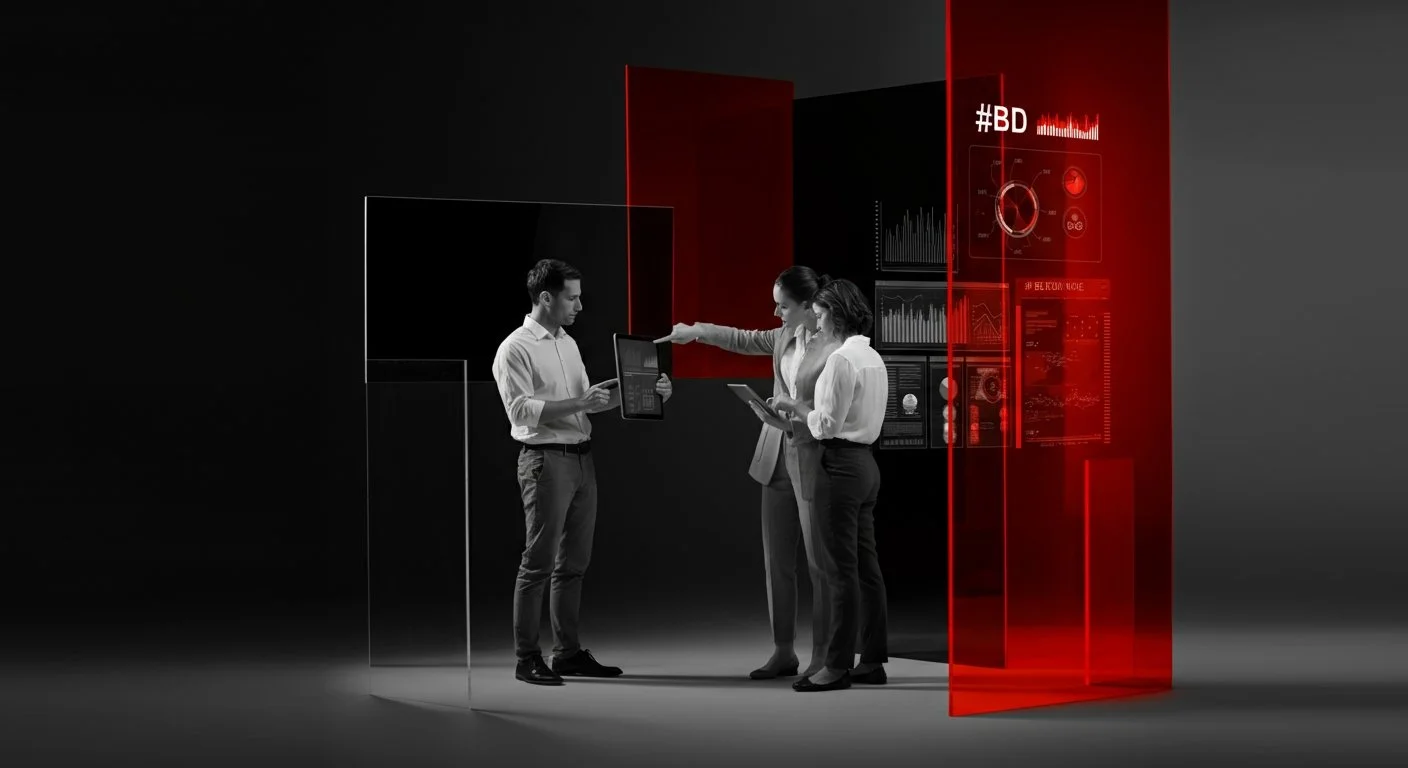Marketing, Memory & Meaning: 9/11's Lessons for Business Communication
Twenty-four years ago, the world changed in an instant. September 11th wasn't just a national tragedy: it was a moment that redefined how businesses communicate with their audiences. In the aftermath, we learned that marketing isn't just about selling products; it's about connecting with people during their most vulnerable moments.
The lessons from that day continue to shape how smart brands approach communication today. Let's explore what 9/11 taught us about authentic messaging, crisis communication, and building genuine connections that matter.
When Everything Stops, Communication Becomes Everything
On September 11th, 2001, businesses faced an unprecedented challenge: How do you communicate when words feel inadequate? Many companies made the mistake of going silent, thinking it was safer to say nothing. Others rushed to capitalize on patriotic sentiment with tone-deaf marketing campaigns.
The brands that got it right understood a fundamental truth: authentic communication isn't about perfect timing: it's about genuine care.
Companies like Southwest Airlines immediately shifted their messaging to focus on employee safety and customer support, not flight deals. They communicated frequently, honestly, and with empathy. This approach didn't just help them navigate the crisis: it strengthened customer loyalty for years to come.
The takeaway? When crisis hits, your audience doesn't need your sales pitch. They need to know you're human too.
The Power of "We're All in This Together"
The most powerful marketing messages in the weeks following 9/11 weren't really marketing at all. They were genuine expressions of shared experience and mutual support. Budweiser's iconic Clydesdale commercial didn't sell beer: it honored the moment. Home Depot focused on helping communities rebuild, literally and figuratively.
These brands understood that in times of collective trauma, the most effective communication strategy is to stand alongside your audience, not in front of them trying to sell them something.
Modern application: Today's successful brands use this same principle during everything from natural disasters to global pandemics. They pause their regular programming to acknowledge what their customers are going through.
Crisis Communication That Actually Works
The events of 9/11 created an unintentional masterclass in crisis communication. Here's what we learned about messaging during difficult times:
Speed matters, but accuracy matters more. Companies that rushed to respond with incomplete information often caused more confusion. The winners took time to gather facts before communicating.
Transparency builds trust. Brands that admitted uncertainty ("We don't know what this means for our operations yet, but here's what we're doing") were trusted more than those pretending to have all the answers.
Actions speak louder than words. The companies that emerged stronger didn't just say the right things: they backed up their words with meaningful actions. They supported employees, helped communities, and demonstrated their values through behavior.
Memory-Making in a Changed World
September 11th taught marketers that we're not just in the business of selling products; we're in the business of making memories. The brands that people remember fondly from that period weren't the ones with the cleverest ads or the biggest budgets. They were the ones who helped people process trauma, find community, and begin healing.
This realization shifted how smart marketers approach their work. Instead of just trying to be memorable, they started trying to be meaningful. They discovered that the most powerful brand memories are formed during moments of genuine human connection.
Pro tip: The memories your brand creates today will influence purchasing decisions for decades. Make sure they're worth remembering for the right reasons.
Building Trust When Trust Feels Impossible
In the immediate aftermath of 9/11, trust in institutions, including businesses, was at an all-time low. People were skeptical of everything, including marketing messages that felt too polished or opportunistic.
The brands that rebuilt trust did so through consistent, honest communication over time. They:
Acknowledged the new reality instead of pretending everything was normal
Showed genuine concern for their communities and employees
Followed through on every promise they made
Remained authentic even when it wasn't profitable
This patience-based approach to trust-building became a blueprint for navigating future crises. Whether dealing with product recalls, economic downturns, or global pandemics, the same principles apply.
The Long Game: How 9/11 Changed Brand Building Forever
The tragedy fundamentally altered how successful brands think about their relationship with customers. Pre-9/11 marketing often focused on aspiration and lifestyle. Post-9/11 marketing became more grounded in shared values and genuine community connection.
Brands started asking different questions:
How can we serve our community during difficult times?
What role should we play beyond just selling products?
How do we communicate our values authentically?
This shift created opportunities for deeper, more meaningful brand relationships. Companies that adopted this new paradigm discovered that customers became more loyal, not just because they liked the products, but also because they respected the brand's character.
Modern Applications: What This Means for Your Business Today
The lessons from 9/11 aren't just historical curiosities: they're incredibly relevant for today's business owners. Here's how to apply these insights:
Prepare for the unthinkable. Have a crisis communication plan that prioritizes authenticity over perfection. Know how you'll communicate with customers, employees, and communities when everything feels uncertain.
Build relationships before you need them. The brands that thrived post-9/11 had already established genuine connections with their audiences. Don't wait for a crisis to start caring about your community.
Practice empathetic marketing. Even during normal times, your customers are dealing with personal challenges. Approach your marketing with the same sensitivity you'd want during your worst day.
Stand for something meaningful. In an age of increasing skepticism toward businesses, having clear values isn't just nice-to-have: it's essential for long-term success.
The Ultimate Marketing Lesson
Twenty-four years later, the most important lesson from 9/11 remains unchanged: authentic human connection trumps clever marketing every time.
The brands we remember fondly from that period weren't necessarily the biggest or the loudest. They were the ones who treated their audiences like human beings during a profoundly human experience.
This doesn't mean exploiting tragedy for marketing gain: quite the opposite. It means recognizing that your customers are whole people with complex lives, fears, hopes, and challenges. When you communicate with that understanding, everything else becomes easier.
Your marketing becomes more effective because it's more genuine. Your customers become more loyal because they trust you. Your business becomes more resilient because it's built on authentic relationships rather than transactional ones.
In a world where consumers are increasingly skeptical of business motives, the brands that win will be those that prove they genuinely care about the people they serve: not just during crises, but every single day.
The memory of September 11th reminds us that marketing isn't just about moving products. It's about moving people. And the best way to move people is to meet them where they are, with honesty, empathy, and authentic care.





